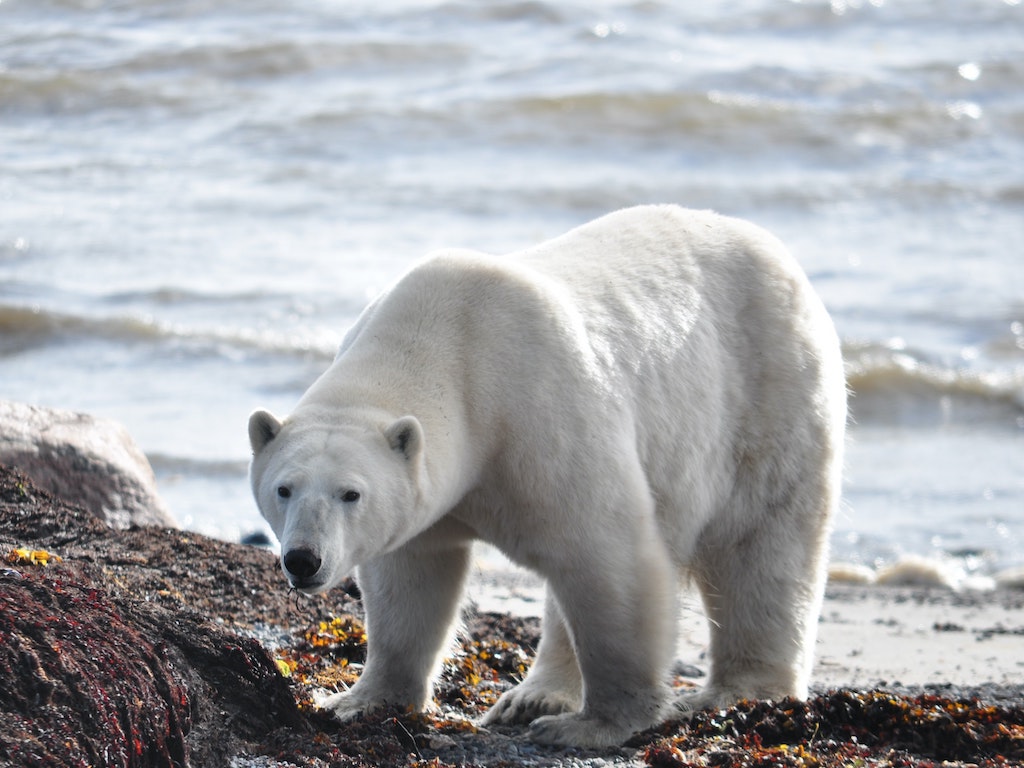3 Mins Read
According to a new scientific paper, almost all polar bears will be wiped out from the planet by the end of the century if greenhouse gas emissions continue to rise at the current rate. Scientists also warned that we could already be seeing dwindling polar bear populations within the next twenty years due to melting Arctic sea ice. These findings show the stark reality the planet is facing if the world does not take urgent climate action.
Published in the journal Nature, the new study examines how polar bears will be affected under different global heating scenarios. Under the current rate of rising carbon emissions, almost all polar bears are likely to disappear by 2100, and may only remain in the northernmost cluster in Canada’s Arctic archipelago.
We may already begin to see these impacts by as soon as 2040, when scientists predict that polar bears will experience starvation and reproductive failure due to melting Arctic sea ice, causing localised extinctions. The research represents the first scientific study into when, how and where polar bears are likely to be wiped out due to climate change.
The study looked at 13 of the 19 polar bear subpopulations in the world, which account for 80% of the total population of polar bears.
Currently, there are as few as 26,000 polar bears left on the planet. They are spread across 19 different areas across the Arctic circle, from Alaska to Siberia. Many are unable to find enough food on land and therefore stake on sea ice to hunt for seals.
However, melting sea ice as a result of rising global temperatures will make it increasingly difficult for polar bears to rely on sea ice for sustenance. In June this year, temperatures recorded in the Arctic circle were as hot as Hong Kong’s average temperature for the month.
It’s been clear for some time that polar bears are going to suffer under climate change.
Péter Molnár, University of Toronto Researcher
While polar bears are able to fast during the summer months spent on land after building up energy reserves over the winter hunting months, their health, reproductive capabilities and survival will decrease substantially if they are unable to find food for prolonged periods.
The second scenario the scientists considered was one where our emissions are moderately reduced. Even in this case, the researchers estimate that polar bear populations will see signs of reproductive failure by 2080.
“It’s been clear for some time that polar bears are going to suffer under climate change,” said Péter Molnár, lead author of the study and biologist at the University of Toronto Scarborough.
“But what was not fully clear was when we would expect major declines in the survival and reproduction of polar bears that could ultimately lead to their extirpation. We didn’t know whether that would happen early or later in this century.”
Many subpopulations of polar bears are already seeing drastic declines in numbers. Since 1987, the population in western Hudson Bay, towards the south of the Arctic circle, the population has decreased by around 30%.
Although the findings present a grim future for polar bears, the researchers say that there is still hope to slow down this trend if the world quickly changes its course and begins to reduce greenhouse gas emissions.
“We would have substantially more populations persisting by the end of the century, even with reduced reproduction, compared with a business-as-usual emissions scenario,” said Molnár.
The scientists did stress, however, that unlike other species threatened by anthropogenic activities such as deforestation, polar bears can only be saved if their habitat is conserved, which means tackling the climate emergency head-on.
Lead image courtesy of Jason Hillier / Unsplash.




